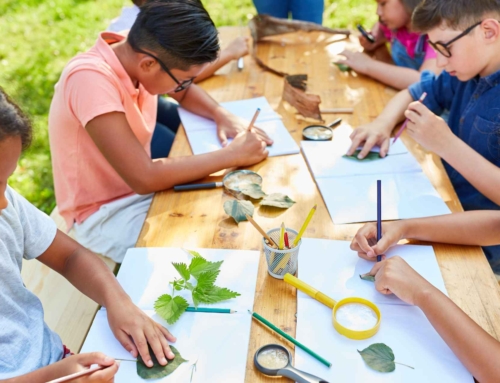Are Babies Bad for the Environment?
Disclosure: This post may contain affiliate links
There is a direct, and obvious, correlation between more people and more resources being used.

What's in this post

It was there yesterday – March 15, 2007
I was only five, but I can still hear the sound of the water from the tap filling my favorite plastic cup. These days I have to unscrew a bottle to quench my thirst. As the human population continues to grow, the amount of natural resources deplete. With the ever increasing population comes ever increasing pollution and destruction. And, since the environment has developed into a business commodity and a political game, real protection and conservation programs have all but ceased to exist. We need to stop allowing the destruction of our environment.
Overpopulation is recognized as a contributor to environmental damage or depletion. Can a baby be a part of this damage or depletion? There would be few people who would think that this statement is true. Many seem to forget the correlation between a baby and adulthood in this regard. “They’re everywhere these days, in all the crowds
These babies can count for more than just overpopulation. They also contribute to waste and pollution. For instance, “disposable diapers [. . .] will take around four centuries to degrade” (Williams 475). We must continually monitor our production of waste. Remember “waste is not just the stuff you throw away [. . .] it’s the stuff you use to excess” (Williams 474). Man is willfully destroying the environment through the use of waste and pollutants. Rachel Carson explains “The most alarming of all man’s assaults upon the environment is the contamination of air, earth, rivers, and sea with dangerous and lethal materials.” (442) Chemicals are considered to be beneficial in commercial farming and have been deemed safe for consumption. Pesticides are sprayed over the crops to prevent disease in the crops, but neglects the link to serious diseases in humans. There are hundreds of new chemicals introduced into the environment each year. The “problem [. . .] has become the contamination of man’s total environment with such substances of incredible potential for harm” (Carson 444). There are alternatives to the harsh and dangerous chemicals. We, as humans, need to remember that “we are part of the earth and it is a part of us” (Hooks 450). When this occurs, an attempt to reverse environmental damage can be made.
Overpopulation, waste, pollution, and environmental damage have become a business commodity used in political games. Corporations will continue to produce polluting chemicals or continue to take away green space because there is no one to stop them. The Environmental Protection Agency, is supposed to be designed to protect the environment. But as Barry Commoner points out, the EPA finds “acceptable level of harm from a pollutant and then issues rules allowing industry to pollute to that level.” (464) The environmental price that we pay for our corporations who pollute is overshadowed by the idea of “limits on economic growth” (Carson 464). In essence it is our fault that the corporations continue to rob the earth of her resources. The “builders are building bigger houses because you want bigger houses” (Williams 474). We are using more so companies are creating more. Even our utility companies are “beginning to worry about [. . .] constantly rising consumption” (Williams 474). Corporations support politicians who are in charge of creating and passing of laws that govern development or regulate clean air and water. This support guarantees politically advantageous regulations towards industry and corporations. Their plan has been to promote the idea of “improving the standard of living” (Williams 475). We must realize now that the environment that is being damaged or destroyed today will not just simply return tomorrow. Rather, it would take generations of conservation and cleanup efforts by the global population before we would see a difference.
Whether through overpopulation, pollution, waste, using it as a business tool or political game, the environment has taken quite a beating. There is a direct, and obvious, correlation between more people and more resources being used. With overpopulation comes increased pollution and waste. But is it our fault or do we blame the corporations and politicians who use our environment as a commodity or game? As Joy Williams states, “more than materials matter [. . .].” (475) The decision is up to us to realize the importance that our actions have on the earth. Only then we can begin to have hope for change.
Works Cited
- Carson, Rachel. Silent Spring. New York: Houghton Mifflin Co., 1962.
- Hooks, Bell. Sister of the Yam. New York: South End Press, 2003.
- Williams, Joy. “Save the Whales, Screw the Shrimp.” Esquire Mar. 1990: 11+.
This post is second in a series of posts from my old college English Composition papers I recently found. In case you missed it, the first post is titled, A Budding Activist: Where Did I Come From? I thought I would share my vegan evolution with you and this, like the prior post, was one of my favorites. Even though this paper was incredibly redundant in most places and doesn’t address veganism specifically, it demonstrates my evolution to a more conscious way of thinking.
Photo credit: Bianca Nogrady via Flickr





